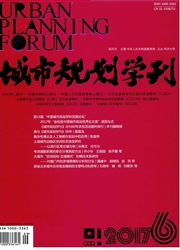

 中文摘要:
中文摘要:
在社会阶层分化、居住空间分异加剧和新贫困问题涌现的背景下,城市规划的土地利用、公共资源分配和设施布局不能仅建立在物质空间评价基础上,还应考虑社会问题的空间分布和社会需求特征.关注城市社会空间的基础评价.首先综述了西方学界社会指标和空间评价研究.以剥夺理论为基础的社会空间和地域政策评价:再分析了中国规划领域内以物质空间为主的基础评价存在的问题:最后以广州市为例.借鉴西方研究尝试构建城市社会空间评价的指标内容、指标处理、综合和空间分析评价方法.并探讨规划启示.
 英文摘要:
英文摘要:
On the context of aggravation of social differentiation, residential segregation and new urban poverty in transitional Chinese cities, the paper highlights the importance of evaluation of social space in urban planning in order to identify the spatial distribution of social issues and social demands. Firstly, the paper reviews western researches on social indicators, evaluation of social space and area-based policy based on theory of deprivation. Secondly, several problems in evaluation and research of social space in urban geography and urban planning are analyzed. Thirdly, using Guangzhou as a case, the paper attempts to construct an evaluation framework that integrates social indicators and evaluation methods. The lessons for urban planning are discussed at the end.
 关于袁媛:
关于袁媛:
 同期刊论文项目
同期刊论文项目
 同项目期刊论文
同项目期刊论文
 期刊信息
期刊信息
